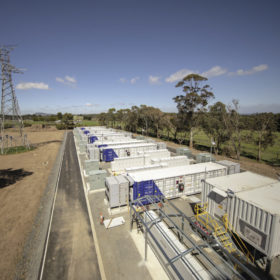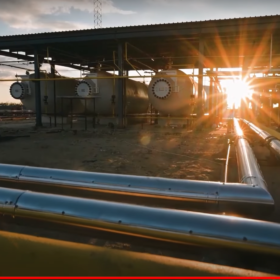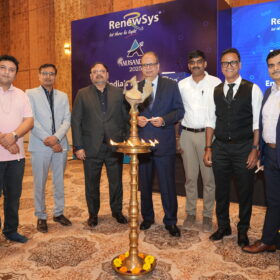In a bid to scale up sustainable energy solutions in the state, the Harithakeralam Mission, under Navakeralam Karma Padhathi, with technical support from WRI India, assessed energy savings and rooftop solar potential in buildings owned by 92 panchayats. This is part of the ‘Net Zero Carbon Keralam Janangaliloode’ campaign. These findings will be translated into actionable projects fostering collaboration, between local self-governments (LSGs) and key organizations, in adopting additional clean energy projects.
Speaking at the event, TP Sudhakaran, Assistant Coordinator, Harithakeralam Mission, Navakeralam Karma Padhathi said, “By translating this research into real-world projects, we aim to create replicable models that local governments can adopt across the state, setting Kerala on a path toward sustainable development.”
The findings and next steps were discussed at a one-day stakeholder consultation workshop organised by WRI India in collaboration with Navakeralam Karma Padhathi on Tuesday. WRI India’s Sustainable Energy Transition project in Kerala aims to support the state and local governments in Kerala’s clean energy transition. The project involves collaboration with key state agencies, including Navakeralam Karma Padhathi, the Energy Management Centre and the Agency for New and Renewable Energy Research and Technology (ANERT) to develop innovative solutions.
Apart from focusing on the pivotal role of LSGs in driving Kerala’s clean energy transition, the workshop also provided a platform for organizations to share their perspectives, discuss emerging solutions and explore strategies for accelerating the state’s shift towards a greener energy future.
In his special address, Mr Biju Prabhakar, IAS, Chairman and Managing Director, Kerala State Electricity Board Limited (KSEBL) emphasized on the need for collaborative work for the state’s energy future. He said, “KSEBL, caters to ~99% of electricity requirements in the state and plays a significant role in the state’s ongoing energy transition. With a data centric and evidence based- strategic energy planning, KSEBL can manage the future electricity demand and procure clean energy supply. Through WRI India’s focused research on priority areas identified, KSEBL can benefit by taking timely measures to plan and effectively manage critical challenges ahead and holistically strategize focusing on both supply and demand side measures while navigating an evolving regulatory ecosystem. “
Kerala has set an ambitious goal to transition to renewable energy by 2040. The state aims to achieve carbon neutrality by 2050. However, as per the State Economic Review 2023, the state currently imports around 75% of its electricity needs (FY 22), much of which is sourced from coal-powered plants.
Sandhya Sundararagavan, Program Head, Energy Transition, WRI India said, “WRI India has been deeply engaged in research to address Kerala’s clean energy transition challenges, actively supporting the state’s ambitious target of reaching 100% renewable energy by 2040. We have been evaluating crucial technologies and strategies, that can accelerate this transition, with key agencies. Today’s workshop represents our ongoing commitment to provide actionable insights that drive Kerala’s clean energy goals forward. We look forward to continuing this partnership, especially in empowering local governments to implement sustainable energy practices effectively.”
About Navakeralam Karma Padhathi
The Navakeralam Karma Padhathi, an initiative by the Government of Kerala, launched as a feasible solution to the socio- economic development challenges faced by Kerala and thereby create a New Kerala through new development perspectives and prospective planning. The Navakeralam Karma Padhathi envisages to undertake tasks of contemporary relevance to resolve the prevailing issues of the people and lay foundation for long-term reforms for the development of the state. Navakerala Karma Padhati-2 envisages to achieve the set goals by mobilizing the masses on a large scale through the participatory campaigns and through coordination of the Local Self-Government Institutions, the concerned departments and agencies through the integration of Central and State Government schemes.
About WRI India
WRI India, an independent charity legally registered as the India Resources Trust, provides objective information and practical proposals to foster environmentally sound and socially equitable development. Through research, analysis, and recommendations, WRI India puts ideas into action to build transformative solutions to protect the earth, promote livelihoods, and enhance human well-being.





